

¿Estás Alimentando a Tu Mascota con Carcinógenos? Por la Dra.
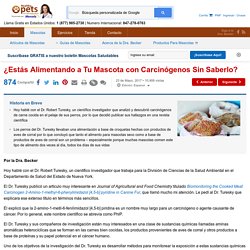
Becker Hoy hablé con el Dr. Robert Turesky, un científico investigador que trabaja para la División de Ciencias de la Salud Ambiental en el Departamento de Salud del Estado de Nueva York. El Dr. Turesky publicó un artículo muy interesante en Journal of Agricultural and Food Chemistry titulado Biomonitoring the Cooked Meat Carcinogen 2-Amino-1-methyl-6-phenylimidazol [4,5-b] pyridine in Canine Fur, que llamó mucho mi atención.
Él explicó que la 2-amino-1-metil-6-fenilimidazol [4,5-b] piridina es un nombre muy largo para un carcinógeno o agente causante de cáncer. El Dr. Uno de los objetivos de la investigación del Dr. De allí pasan a través de la circulación sistémica. En un Experimento Inesperadamente Aparecen Carcinógenos en el Pelaje de Perro El Dr. En realidad no esperaba obtener un resultado positivo, porque sus perros no comen bistec a la parrilla o hamburguesas. Factores carcinogenicos. The Role of Vitamin D in Cancer Prevention. ALTHOUGH VITAMIN D deficiency is known mainly for its association with fractures and bone disease,1–7 its newly recognized association with risk of several types of cancer is receiving considerable attention.8–11 The high prevalence of vitamin D deficiency, combined with the discovery of increased risks of certain types of cancer in those who are deficient, suggest that vitamin D deficiency may account for several thousand premature deaths from colon,12 breast,13,14 ovarian,15 and prostate16 cancer annually.17 This discovery creates a new impetus for ensuring adequate vitamin D intake in order to reduce the risk of cancer.
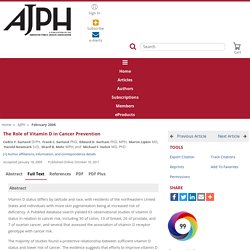
Most observational studies have reported that vitamin D has a beneficial effect on risk of colon, breast, prostate, and ovarian cancer. Although serum studies have the advantage of measuring vitamin D status regardless of source, they can be confounded by associations with physical activity, particularly in studies of colon cancer. Source. Note. Vitamin D in the cancer patient. Raw Feeder to Raw Feeder: Rodney Habib, Vegetables, Canine Cancer, and Ketosis. The Truth About Pet Cancer - Episode 1 - The History of Animal Cancer. Vitamin D-3 secret weapon against cancer. Vco12101.pdf;jsessionid 1E5A3A293722EAAEE824802772F6C2F3.
Nutrition for Cancer. Richard Loyd, Ph.D.
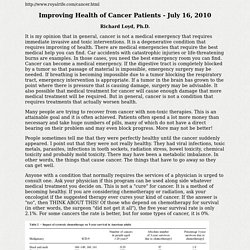
It is my opinion that in general, cancer is not a medical emergency that requires immediate invasive and toxic interventions. It is a degenerative condition that requires improving of health. There are medical emergencies that require the best medical help you can find. Car accidents with catastrophic injuries or life-threatening burns are examples. In those cases, you need the best emergency room you can find. Many people are trying to recover from cancer with non-toxic therapies. People sometimes tell me that they were perfectly healthy until the cancer suddenly appeared. Anyone with a condition that normally requires the services of a physician is urged to consult one.
Does this make you feel like chemotherapy is a cruel fraud in most cases? The first 12 items are what I consider to be the most important activities needed to get well. BERBERINE. Berberine is a component of many medicinal herbs, such as Goldenseal (Hydrastis Canadensis), Chinese Isatis (Isatis tinctoria), Oregan grape (Berberis aquifolium) and berberry bark.

It has quite pronounced effects against cancer along several pathways. It can act on its own, but can also improve effectiveness of both radiotherapy and chemotherapy. Expert Herbalist, Alan Hopking, described Berberine thus: Berberine has an action against some pathogens that is actually stronger that that of antibiotics commonly used. It has been found to inhibit candida albicans and prevents the overgrowth of yeasts, a common side effect of antibiotic use. This fascinating alkaloid increases blood supply to the spleen and thus increases immune response. Toxicological Study of Pesticides in Animals - T.S.S. Dikshith. The Vital Importance of Comparative Oncology: Cancer Clues from Dogs. Comparative Oncology Cancer treatments span the species and doctors and vets are now collaborating together (click here to see an April 2006 CBS news article & video).
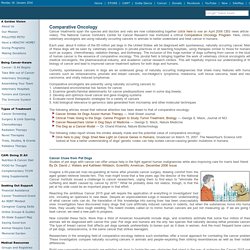
The National Cancer Institute's Center for Cancer Research has instituted a critical Comparative Oncology Program. Here, clinical veterinary oncologists are using naturally occurring cancers in animals to better understand and treat cancer in humans. Each year, about 6 million of the 65 million pet dogs in the United States will be diagnosed with spontaneous, naturally occurring cancer. Many of these dogs will be seen by veterinary oncologists in private practices or at teaching hospitals, using therapies similar to those for humans, such as surgery, chemotherapy, radiation therapy, and biotherapy.
Long Living Pets - Long Living Pets. Fight Canine Cancer. Pet Testimonials. Pet TestimonialsHere you will find radio spots that might reference your illness.
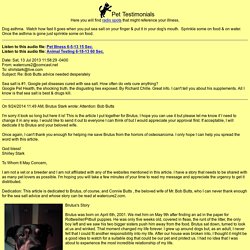
Dog asthma. Watch how fast it goes when you put sea salt on your finger & put it in your dog's mouth. Sprinkle some on food & on water. Once the asthma is gone just sprinkle some on food. Date: Sat, 13 Jul 2013 11:58:29 -0400 From: watercure2@comcast.net To: shirlstark@live.com Subject: Re: Bob Butts advice needed desperately Sea salt is #1.
On 9/24/2014 11:49 AM, Brutus Stark wrote: Attention: Bob Butts I'm sorry it took so long but here it is! Once again, I can't thank you enough for helping me save Brutus from the horrors of osteosarcoma. God bless! To Whom It May Concern, I am not a vet or a breeder and I am not affiliated with any of the websites mentioned in this article. Dedication: This article is dedicated to Brutus, of course, and Connie Butts , the beloved wife of Mr. Brutus's Story Brutus was born on April 6th, 2001. EPIGENETICS for Breast Cancer Prevention. Every year, nearly 250,000 women learn that they have invasive breast cancer.
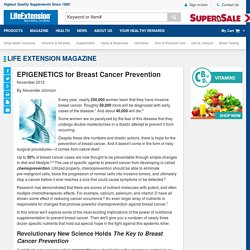
Roughly 58,000 more will be diagnosed with early cases of the disease.1 And about 40,000 will die.2 Some women are so paralyzed by the fear of this disease that they undergo double mastectomies in a drastic attempt to prevent it from occurring.